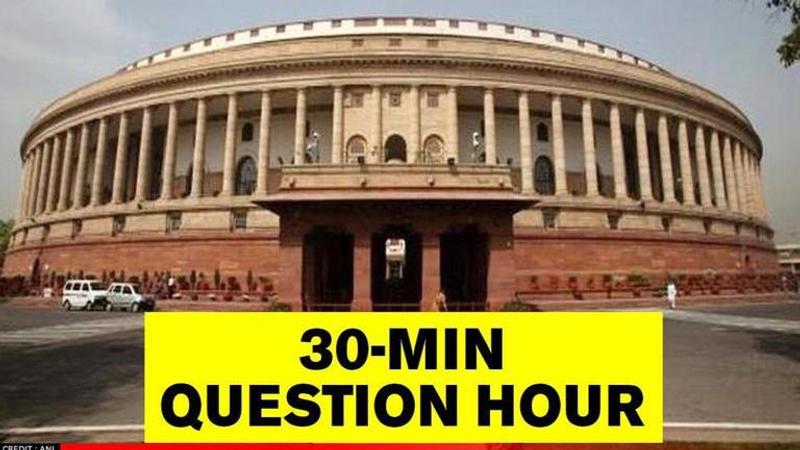Published 23:40 IST, September 3rd 2020
Modi govt allows 30-min Question hour in monsoon session after huge Opposition uproar
Faced with criticism for cancelling 'Question Hour', Centre on Thursday revised its decision allowing a 30-minute question hour in upcoming Parliament session

Faced with criticism for cancelling 'Question Hour', Centre on Thursday revised its decision allowing a 30-minute question hour in the upcoming Parliament session. However, the Centre stated that only unstarred questions will be taken. The parliament's monsoon session will be held continuously from September 14 to October 1 - 18 sittings in total.
30-minute Question hour allowed
Question hour cancelled & Opposition reaction
Earlier on Wednesday, Rajya Sabha Secretariat issued a notification stating that 'there will be no question hour and private members' business during the monsoon session of Parliament'. In the upcoming session, on day one (September 14), Lok Sabha will be held from 9 am to 1 pm while Rajya Sabha proceedings will be held from 3 pm to 7 pm. After September 14, Rajya Sabha will sit in the first half from 9 am to 1 pm and Lok Sabha's processing is scheduled from 3 pm to 7 pm, as per ANI.
Reacting to the Question hour cancellation, Trinamool, NCP, AIMIM and Congress slammed the Centre calling its an attempt of BJP to 'murder democracy'. While the Opposition claimed that the decision was taken unilaterally by the Centre, Union Parliamentary Affairs Minister Prahlad Jodhi said that 'every party agreed to scrap question hour'. With most Opposition leaders urging the Centre to rethink the decision, the Modi government seems to have relented by allowing a 30-minute Question hour.
What is Question Hour?
Question Hour is the one hour that Members of Parliament ask questions of ministers and hold them accountable for the functioning of their ministries. The questions are usually framed in a way that it can gather information from the ministry and hopefully lead to suitable action. With the broadcasting of Question Hour since 1991, studies say that it has been the most visible aspects of parliament in action. Most question hours have been used to expose financial irregularities and made government data on spending public, via pointed questions by MPs.
COVID ready Parliament
MPs have been told to get themselves tested for COVID-19 at least 72 hours before the start of the Monsoon Session of Parliament. The parliament has taken COVID-specific precautions like- four large display screens, 6 small screens in 4 galleries of House, audio consoles in galleries, ultraviolet germicidal irradiation, special cables connecting two Houses for transmission of audio-visual signals, polycarbonate sheet separating Official Gallery from the chamber of the House. With Lok Sabha Speaker Om Birla insisting on full-physical sessions, both Rajya Sabha chamber and galleries and Lok Sabha chamber will be used for seating the members during the monsoon session.
Updated 23:40 IST, September 3rd 2020




